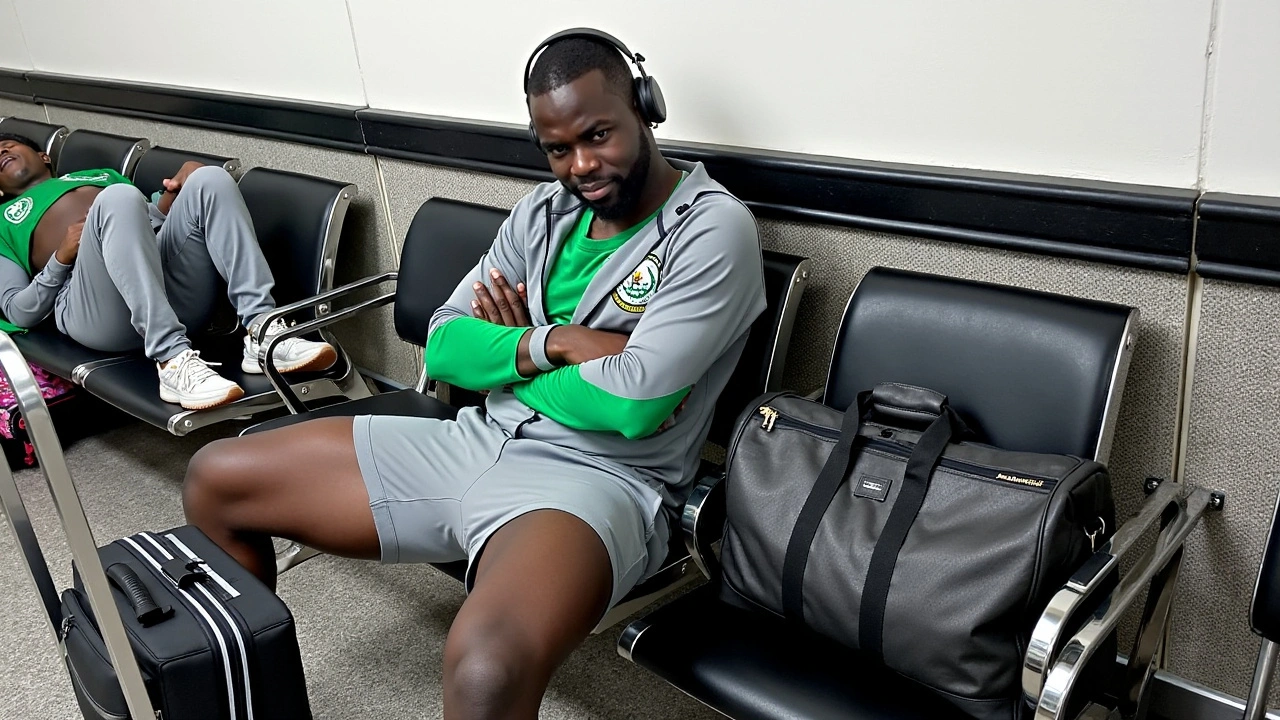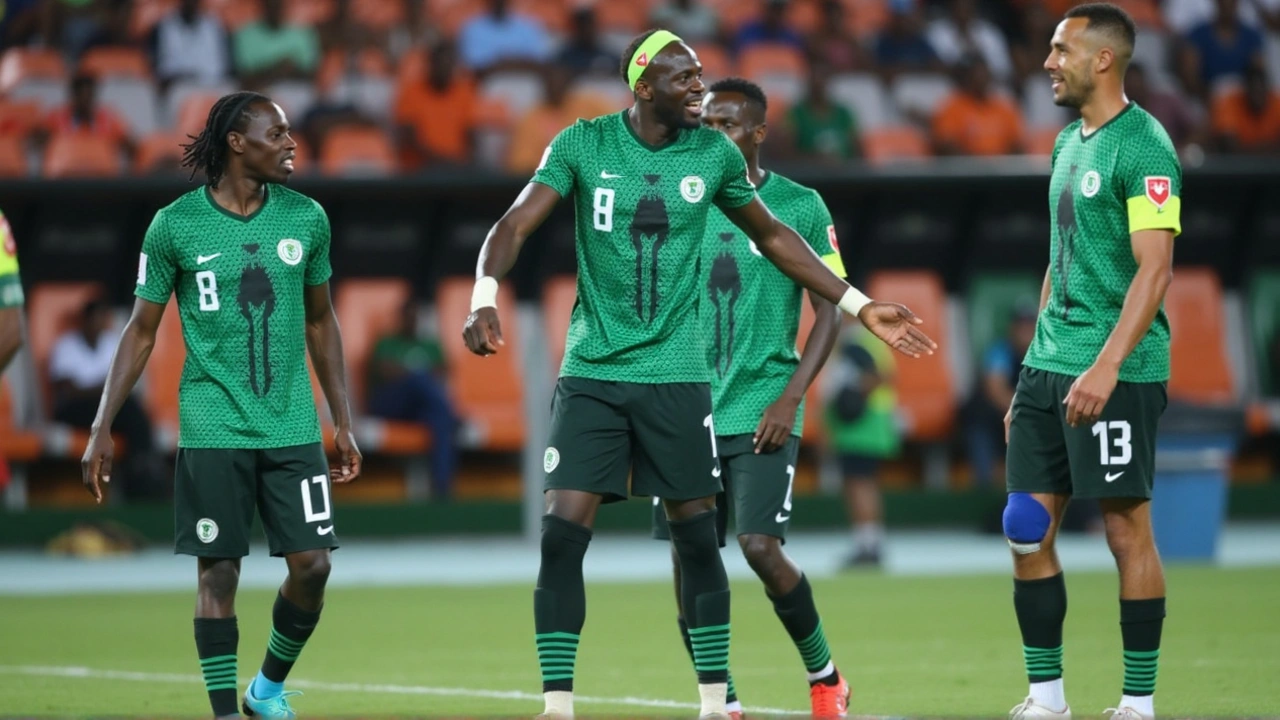Nigeria's Controversial Boycott of AFCON Qualifier Against Libya: Human Rights Concerns and Sporting Decisions
 Oct, 15 2024
Oct, 15 2024
Nigeria's Boycott: A Stand Against Poor Treatment
Nigeria's decision to skip their Africa Cup of Nations (AFCON) qualifier against Libya came amid allegations of harsh treatment upon their arrival in the country. The Super Eagles were set to face Libya in Benghazi, but instead landed at Al Abraq Airport, positioned about 250 kilometers from their planned arrival destination. What awaited them was far from the usual hospitality extended to visiting teams: they were left stranded at the facility for more than 16 hours, facing shortages of food, water, and transportation.
The experiences recounted by the Nigerian team reverberated across the sporting world, showcasing not only an issue of logistics but also one of human rights within competitive sports. The team’s inability to move toward their hotel, located three hours away by road, left the players and management no choice but to find temporary solace within the walls of Al Abraq Airport. Pictures shared by team captain William Troost-Ekong depicted a disheartening scene, with players sprawled across seats, seemingly trying to rest amid anxiety and discomfort.
Taking a Stand: The Nigeria Football Federation's Role
The Nigeria Football Federation (NFF) did not just sit back. They officially announced their stance on the matter, opting for a hard-line approach by issuing a boycott of the scheduled game. They deemed conditions faced by the Super Eagles as unacceptable for an international sport encounter, emphasizing that the well-being of the players could not be compromised for the sake of competition. Consequently, arrangements were swiftly made to facilitate the team’s return to Nigeria, marking a sudden and dramatic end to the trip.
Such decisions bring into the limelight the responsibilities of sports federations towards their athletes. There is a fine line between competitive spirit and ensuring player welfare, a line that, according to Nigeria, was crossed during their Libyan adventure. Their action not only reflects a bid for fairness but also challenges the norms of accepting undesirable conditions simply because they fall within standard operational hiccups.
Caf and Official Reactions: Navigating Through Contentious Waters
The Libya Football Federation countered Nigeria’s claims by attributing the diversion to routine air traffic protocols, including necessary security and logistic considerations. Despite these justifications, the NFF reacted without hesitation, filing an official complaint with the Confederation of African Football (CAF). This move underscores another layer to the story: the potential consequences and repercussions of administrative decisions on the credibility and fairness of sports competitions.
With the incident drawing immense attention, former African footballer Victor Ikpeba expressed emphatic support for Nigeria’s stance, advocating for Libya to face stringent penalties. As former sportsmen and sportswomen rally around the Super Eagles' decision, the chain of events raises questions about the level of oversight required by governing bodies in ensuring all participating teams receive equitable treatment.
The Broader Implications: Points and Precedents
Despite the boycott, unsettled victories and arrangements still hang in the balance. Nigeria's clean 1-0 win against Libya before their scheduled match in Benghazi had temporarily secured them a lead in Group D, with seven points over Libya’s single one. However, this standoff brings into question any point distributions from the canceled fixture. How CAF interprets and addresses the complaint will define the narrative of the tournament's future, especially in maintaining sporting integrity.
The incident exacerbates ongoing tensions, with Libya previously raising grievances about their treatment in Nigeria. They claimed their team, upon visiting Uyo for the first leg, had faced similar plights. Allegations of being diverted to Port Harcourt and experiencing extended waits propelled a rebuttal from the NFF, further illustrating the complex dynamics at play beyond the pitch.

Reflections on the Path Forward
As the sports world closely monitors the unfolding drama, the episode serves as a stark reminder of the multifaceted challenges faced in global sports. It places a spotlight firmly on the blending of administrative responsibilities with ethical obligations. Teams, when stepping onto international soil, expect a level of respect and courtesy transcending political and logistical barriers.
The outcome of Nigeria's hard stance remains one to watch, not just for immediate ramifications but also for the precedent it may set for future encounters. Whether through enhanced protocol checks or more rigorous sanctioning of perceived host wrongdoings, the debate could help shape a fairer, kinder environment for international competitions, where the spirit of the game perseveres above all else.